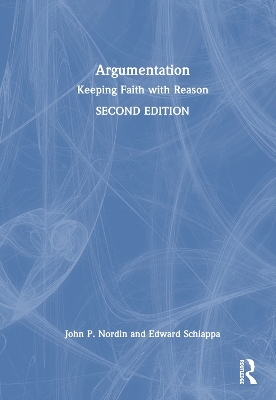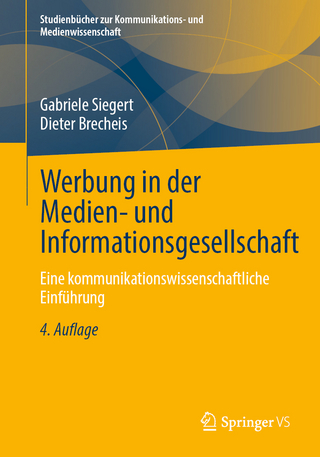
Argumentation
Routledge (Verlag)
978-1-032-54123-5 (ISBN)
Clearly written, with minimal technical jargon, the book features many contemporary real-world examples. Through a unique conceptual framework, students will learn how to assemble a coherent logical argument, assess sources, and organize and present written and verbal arguments. The authors use the Toulmin model throughout to present issues and clarify concepts and have expanded the model to show how it can be used to examine real-world arguments. This new edition provides a deeper focus on value claims and credibility. It also shows students how to assess fake news, misinformation, and post-truth and incorporates more social scientific theories of persuasion such as the Elaboration Likelihood Model.
Argumentation: Keeping Faith with Reason is an ideal textbook for undergraduate courses in argumentation, persuasion, critical thinking, and informal logic.
An Instructor’s Manual including advice on how to teach each section, sample quizzes, and additional examples is available at https://routledge.com/9781032541228.
John P. Nordin is a Senior Lecturer in the Department of Communication Studies at the University of Minnesota, USA. Edward Schiappa is the John E. Burchard Professor of Humanities at the Massachusetts Institute of Technology, USA.
Part 1: Getting started
Chapter 1: Why study argument?
Chapter 2: What is an Argument?
Chapter 3: Dimensions of Proof
Chapter 4: Modeling Arguments (Toulmin model)
Part 2: Analyzing claims
Chapter 5: Introduction to claim types
Chapter 6: Analyzing Fact Claims
Chapter 7: Analyzing Value Claims
Chapter 8: Analyzing Policy Claims
Part 3: Developing Your Argument
Chapter 9: Kairos: The Context of Your Argument
Chapter 10: Ethos: Developing Your Credibility
Chapter 11: Presenting Your Argument
Part 4: Supporting and defending your argument
Chapter 12: Finding Evidence
Chapter 13: Evidence and your argument
Chapter 14: Rebutting Arguments
Part 5: Forms of reasoning
Chapter 15: Introduction to forms of reasoning
Chapter 16: Definitional Arguments
Chapter 17: Argument by Example
Chapter 18: Argument by Analogy and Parallel Case
Chapter 19: Causal Argument
Chapter 20: Argument from Sign
Chapter 21: Argument by Dilemma
Chapter 22: Argument from Authority
Part 6: Conclusion
Chapter 23: Remember this
| Erscheinungsdatum | 04.06.2024 |
|---|---|
| Zusatzinfo | 8 Tables, black and white; 14 Halftones, black and white; 14 Illustrations, black and white |
| Verlagsort | London |
| Sprache | englisch |
| Maße | 178 x 254 mm |
| Gewicht | 453 g |
| Themenwelt | Geisteswissenschaften ► Philosophie |
| Sozialwissenschaften ► Kommunikation / Medien ► Kommunikationswissenschaft | |
| Sozialwissenschaften ► Kommunikation / Medien ► Medienwissenschaft | |
| ISBN-10 | 1-032-54123-7 / 1032541237 |
| ISBN-13 | 978-1-032-54123-5 / 9781032541235 |
| Zustand | Neuware |
| Informationen gemäß Produktsicherheitsverordnung (GPSR) | |
| Haben Sie eine Frage zum Produkt? |
aus dem Bereich


